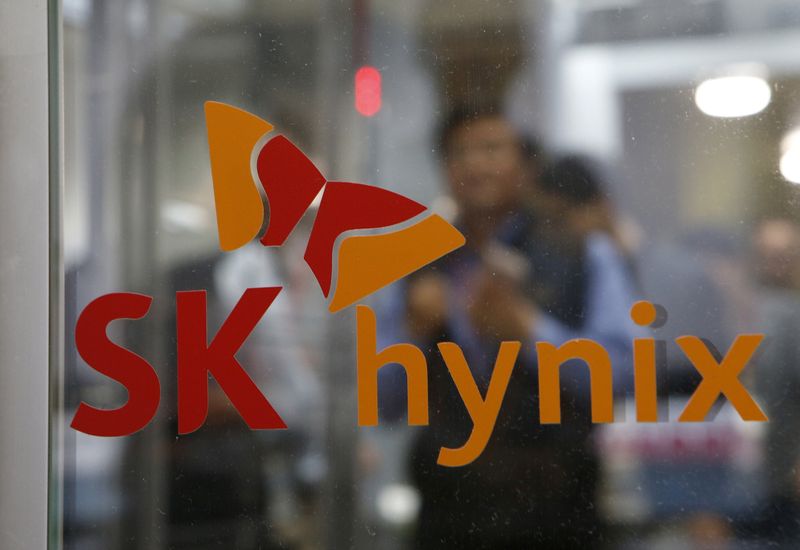Chip industry grapples with new U.S. curbs on China sales
2022.10.07 14:14
[ad_1]

© Reuters. FILE PHOTO: Employees walk past the logo of SK Hynix at its headquarters in Seongnam, South Korea, April 25, 2016. REUTERS/Kim Hong-Ji/File Photo
By Stephen Nellis and Jane Lanhee Lee
(Reuters) -Companies around the world on Friday began to wrestle with the impact of wide-ranging U.S. curbs on selling chips and chip manufacturing equipment to China.
South Korean memory chip maker SK Hynix Inc said on Friday it would seek a license under new U.S. export control rules for equipment to keep operating its factories in China.
American officials on Friday published a sweeping set of rules that restrict the export of some U.S.-made semiconductor manufacturing equipment to China, but provided exemptions for companies from the United States and its allies to seek a license.
“SK Hynix is ready to make its utmost efforts to get the U.S. government’s license and will closely work with the Korean government for this,” the company said in a statement. “We’re also ready to operate our fabrication plants in China smoothly, while complying with the international order.”
Officials on Friday also introduced rules against selling a broad swath of chips for any use in “supercomputer” systems in China. Supercomputers can be used in developing nuclear weapons and other military technologies. U.S. companies Nvidia (NASDAQ:) Corp and Advanced Micro Devices (NASDAQ:) Inc both said last month they had been told to stop exporting their top-tier chips to China.
The rules define a supercomputer as any system with 100 or more petaflops of so-called double precision computing power, or 200-plus petaflops of single precision computing power, within a 41,600 cubic feet area. A petaflop is a measure of a computer’s processing speed.
Nvidia, which said last month that the rules could affect $400 million of its current-quarter sales in China, said Friday it did not expect any further impact on its business.
“These regulations impose on the broader industry controls on processors meeting certain thresholds that we were already subject to. We don’t expect the new controls, including restrictions on sales for highly dense systems, to have a material impact on our business,” the company said in a statement.
AMD did not immediately respond to a request for comment.
[ad_2]
Source link








